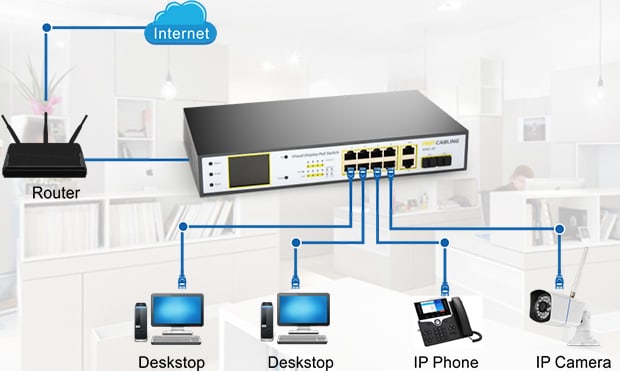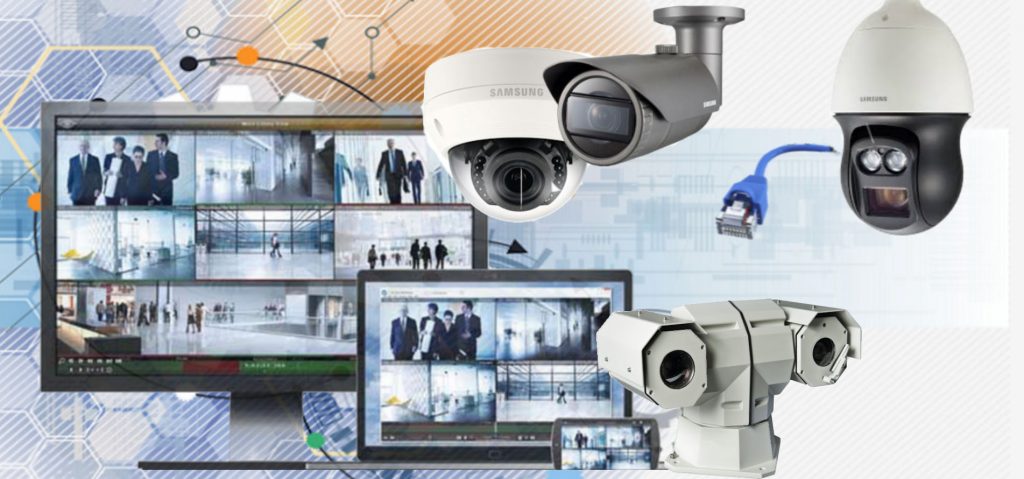Everything You Need to Know About IP Camera System

IP cameras or Internet Protocol Camera is a type of digital video camera that sends image data and receives control date through the internet. It is now commonly used for surveillance. There is no requirement for local recording as most IP cameras are webcams. IP camera or netcam applies only to those used for surveillance that can be directly accessed over a network connection. Some IP cameras do require the support of a central network video recorder to handle the recording, video, and alarm management. IP camera systems are different for both business and home applications. IP cameras that is used for businesses provide higher performance and increased capability. The IP camera system include the video recording system and use many different types of cameras.

How does an IP Camera Work?
IP cameras capture images in much the same way as a digital camera, and compress the files to transmit over the network. IP cameras may be used with a wired network connected via ethernet cable to a broadband modem or router, or wirelessly via a WiFi router.
How do I set up an IP Camera?
Setting up an IP Camera is relatively simple, requiring nothing more than a network connection and a little patience to site and configure the camera. The majority of IP Cameras on the market can be configured to provide live viewing, continuous recording, operate at a scheduled time or be triggered by a specific event.
What are the benefits of an IP Camera?
The images captured by an IP camera may be viewed from anywhere in the world via the internet, whether via PC, laptop or mobile phone. In many cases, as well as being able to view video footage and listen to audio streaming, the camera may also be controlled remotely.
IP Cameras are a versatile security solution, requiring nothing more than a network connection. There is no need for co axial cables, a computer station or even wired electricity. They can be used as a temporary or permanent solution, and relocated as and when required.
IP cameras are available for both indoor and outdoor use, with both day and night functionality, and with the ability to pan or zoom either remotely or via operator command. Whether you require overt or covert security, there is an IP camera to suit.

The Advantages of IP Security Camera Systems:
Remote accessibility
IP Videos can configure and distribute high quality video over any kind of IP network or the Internet, enabling authorized users to view live and recorded video at any time and from virtually any networked location in the world.
Cost effectiveness
An IP Network infrastructure is often already existing and used for other applications within an organizations, so a network video application can be easily added to the existing infrastructure. Furthermore IP Video products run on Ethernet networks, thus using standard PC service hardware for video recording and storage rather than additional costly equipment such as DVRs and additional wires which is involved for analogue CCTV Systems. This significantly reduces equipment and management costs. Higher- performing multi sensors cameras are also available, such as the eight megapixel quad 180 degree and 360 degree panoramic cameras which can drastically reduce user cost per unit area under surveillance by covering more ground than the traditional cameras.
High Quality Images
It is critical for high image quality in a video surveillance application to clearly capture an incident in program and identify persons or objects involved. With progressive scan and megapixel technologies, a network camera can deliver better image quality and higher resolution than traditional analog cameras.
IP network cameras are capable to provide up to 16x times the resolution of traditional analog cameras. Analog images are made of lines and each image is formed from two interfaced fields which are then converted to digital formats for viewing. At each conversion, the captured images are degraded and the further the analog video signals need to travel, the quality of images lower.
In a fully digital IP- Surveillance system, images from a network camera are digitalized once and they stay digital with no unnecessary conversions and there is no affect on the image resolution due to distance travelled over a network. In addition, digital images can be more easily stored and retrieved than in cases where analog video tapes are used.

Built In Intelligence and Analytic Capabilities
Advanced network cameras and video encoders with built in intelligence or analytics reduce the amount of uninteresting recordings and enable immediate programmed responses. These features re not available in an analog system. Furthermore, some advanced IP cameras/ IP Video encoders have built in motion detection and alarm management, allowing the cameras to capture particular scenes and when to alert a specific operator for monitoring and/ or response.
Scalability and Flexibility
Whereas the analog system will require additional coaxial cables for each additional cameras to a recording station; an IP System allows the flexibility and freedom to add more network cameras and video encoders without significant or costly changes to the network infrastructure. Network video products can also be placed and networked from virtually any location on a network using cost efficient connections such as Power over Ethernet (PoE) or eve solar power. Power over Ethernet (PoE) is a technology allows devices to supply and be supplied power through Ethernet cables. This saves the cost of also having to install power wiring, which not only saves time and costs, but significantly streamlines the installation and maintenance process overall. The system can as open of closed to suit your growing needs.

Great article about IP camera system, as of now there are many companies offers advanced products with the help of artificial intelligence, in which one of the leading companies is MulticoreWare. For more, please visit: https://multicorewareinc.com